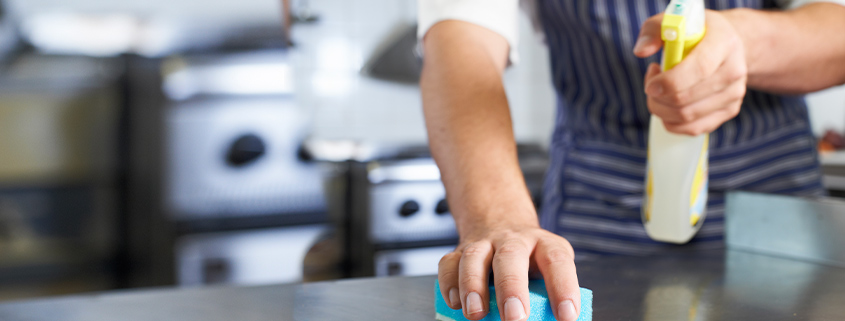How are the restaurateurs in UAE, Saudi Arabia and other Middle Eastern countries resurrecting their business in the aftermath of the coronavirus lockdown? The countries which have set to open their market shed light on how Indian restaurants could act post-lockdown. Industry stalwarts from the international market—Avinash Ratta (CEO| Managing Director, Grain Velocity), Sajan Alex (Manager | Tablez Food Company), Kamran Khan (Managing Director | AIM Restaurant Consultancy & Marketing)— shared their thoughts on Dineout’s latest Facebook Live hosted by Vivek Kapoor, (Co-founder | Dineout).

New Business Models
In an unprecedented lockdown situation where everyone is struggling to survive, restaurateurs can –
Realign strategies and business models according to post-lockdown business prospects: Include social distancing, sanitising, creating hygiene-oriented supply chain into novel models. These will garner consumer confidence by ensuring hygiene-specific concerns are addressed at the right time. Clean the slate: Build new prototypes, models, and supply chains, emphasise cleaning material as both operational and marketing tool, rework PNLs and costs. Comparative cuisines, virtual brands collaborating with online aggregators, using chatbots for customer interaction, building cloud-kitchens with aggregators, customer loyalty apps. Shifting priorities and pecking orders: Short-run fixed costs cannot change with a drop in business; reducing customer pessimism is the new priority.
Contactless Dining

Many restaurateurs are looking at contactless dining to remove nonessential human interaction and continue to safeguard both diners and staff interest. Diners are skeptical about stepping out and wary about touching un-sanitised surfaces. They want to avoid touching things like currency notes, which goes through multiple hand exchanges. To counter that, restaurants need to build trust and habits that reassures anxious diners.
There are a multitude of touchpoints with a diner that restaurateurs are looking to modify and facilitate with the introduction of technology. These can be simple actions like booking a table, pre-ordering meals, takeaway, digital ordering, digital payment, etc. Priority for diners will shift and restaurants are planning accordingly.
New Government Regulations (UAE)
Continuous sanitisation, testing each member of staff, consistently cleaning of premises is mandatory.
Restaurants must register in the food watch portal and ensure compliance Utilise restaurant dining space with a maximum 30% for seating guests capacity. Impose restrictions discouraging children less than 12 and old people from dining. Use disposable cutleries and crockery for diners, and masks and gloves for staff. Ensure that the produce arrives through legitimate and trustworthy channels (countries of origin must be known). Provide leadership-level training, with trained person-in-charge (PIC) on every restaurant shift certified to maintain food hygiene. Ensure minimal risks for diners and open restaurants in a phased manner. As one cannot control customer confidence due to the asymptomatic nature of coronavirus.

Religious Tourism
This has come to a sudden halt and adversely affected tourism-related businesses.
Coronavirus has upended the core of the hospitality industry. Reviving the aspect of personal touch in such an environment has become a task. Curfew has been lifted now, but only for takeaway or home delivery will be operational in the first phase. This has led to small-time restaurants struggling to make ends meet, while big ones show decreased revenues.
Mergers and Acquisitions (M&A)
Business models (fine/casual/quick-dining services) must be analysed, along with differences in dining traffic. In the QSR industry in UAE, takeaway/online ordering traffic almost matches the casual dining traffic; convenient in a lockdown situation. Now, the takeaway concept must be made more viable to increase diner traffic. Businesses belonging to families, e.g. Americana group etc. concept clusters which can be collated across locations to drive further synergies. Innovative food & beverages businesses are creating ordering platforms from where consumers can directly order food, eliminating middlemen, as existing models lead to lowered sales, revenue, and capacity. M&A must review concept clusters and formats: Revenue can be managed with cost-effective rentals and mobile sales opportunities. Attract the swaying public who are torn between delivery and dining: Restaurants can hold evening shows, quizzes on dining brands and experience etc.

Loyalty Programs
Businesses cannot survive solely on home delivery models, as the costs would increase beyond rental, food, and dining costs. Plus, food becomes the only selling commodity in online delivery. Re-engineer and remodel: Smart utilization of dining space, delivery-friendly menus, alternative supply chains due to reduction in international transport/mobility, increased non-cash transactions to revive revenue, and digitization of orders and transactions.
In conclusion, contactless, hygienic, and safe order delivery is integral to increasing diner loyalty and restart business.

